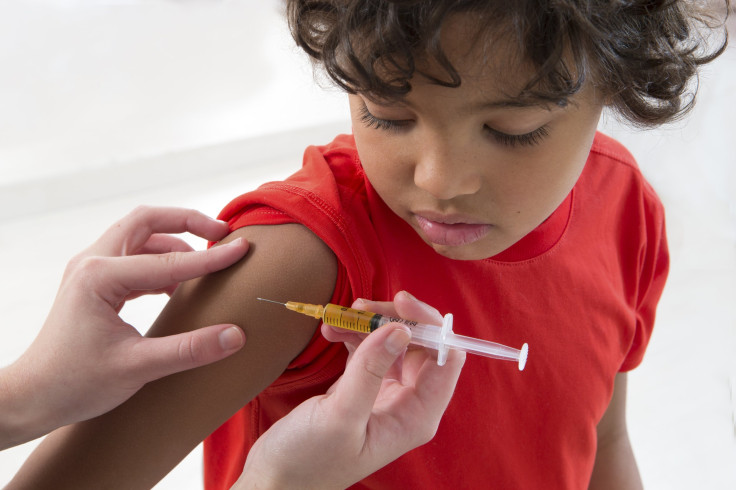Diphtheria-Stricken Boy Becomes Spain's First Case In 28 Years, Thanks To Anti-Vaxxers

Nearly 30 years ago, diphtheria was completely eradicated in Spain; but now it appears to be back, with a 6-year-old boy hospitalized and eight other patients in isolation.
The boy, who has only been identified as Pau, began exhibiting symptoms of the disease on May 25, after returning from a several day stint at a school camp. He came into contact with eight other children who tested positive for the bacterium, but the other kids have not gotten sick from the infection, likely because they were vaccinated. Pau is the first recorded case of a child with diphtheria since 1986, when the so-called “strangling angel of children” disease was eradicated due to vaccination efforts.
According to The Local, the parents of the 6-year-old — who had refused to immunize their child — feel “destroyed and cheated” by the anti-vaccination movement.
“They are a lovely couple and both feel a terrible sense of guilt,” Antoni Mateu, the regional secretary for public health in Catalonia, said during a press conference.
Diphtheria is a bacterial infection that attacks the nose and throat, causing sore throat, fever, swollen glands, and weakness/fatigue. Children with diphtheria will typically experience a thick, gray substance coating the back of their throat, which makes it difficult to breathe. While it’s rare, it’s a serious disease that requires immediate care in the hospital. If treatment isn’t given in time, diphtheria can damage the heart, kidneys, and nervous system. The disease is airborne, spread through coughing or sneezing.
Anti-vaxxers — many of whom claim vaccination is toxic and unnecessary, and also causes autism — have influenced parents in the U.S. as well as Europe in recent years, even though the studies they claim are true have been debunked. The measles outbreak that occurred in California in December 2014 was likely due to the state’s low vaccination rates. But time and time again, scientific evidence points to the fact that vaccination isn’t harmful; in fact, there is no link between vaccines and autism. Vaccines simply save thousands of lives by avoiding preventable diseases.
Convincing anti-vaxxers that vaccines are safe may be easier said than done, but we can’t wait for them to learn the hard way, like Pau’s parents. Hundreds of children’s lives could be saved if governments and schools were stricter with vaccination regulations.
Meanwhile, back in Barcelona, Pau is currently in the intensive care unit where doctors are treating him in a "critical but stable" condition.
Published by Medicaldaily.com



























